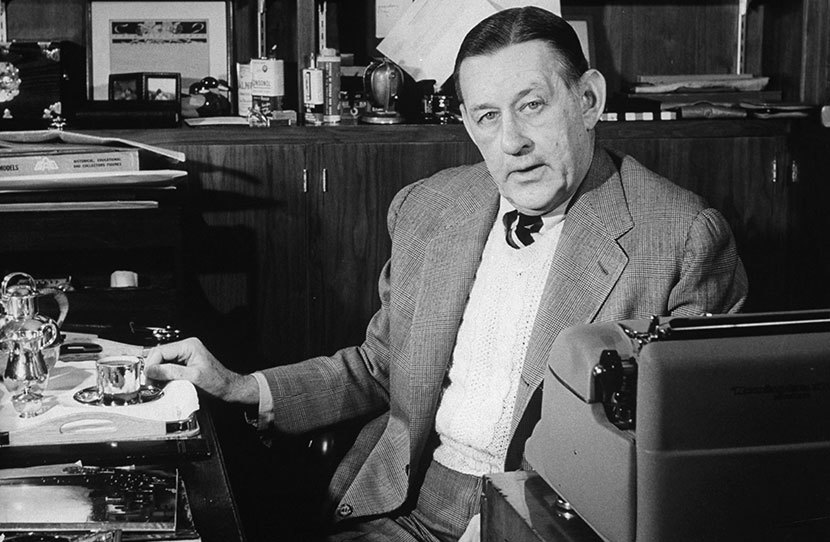John O’Hara (1905–1970)
From John O’Hara: Stories

John O’Hara “had three great themes: class, sex, and drinking,” Charles McGrath writes. “The last two he taught himself; the first was his birthright.” Yet, when O’Hara’s father died in 1925, the family was nearly penniless and John never fulfilled his adolescent dream of attending Yale—a disappointment that he loudly resented for the rest of his life. The year O’Hara turned thirty-six, a group of friends were wondering what to do with the money remaining from a Spanish Civil War fund, and Ernest Hemingway quipped, “Let’s take the bloody money and start a bloody fund to send O’Hara to Yale.”
In spite of the lack of a college education and in spite of all the drinking—or maybe because of them—O’Hara published more stories in The New Yorker magazine than any fiction writer in its history (247 in all), although he is probably more famous for a series of blockbuster best sellers, including Appointment in Samarra, BUtterfield 8, Pal Joey, A Rage to Live, and Ten North Frederick.
In celebration of the publication of John O’Hara: Stories, the first volume of the Library of America’s edition of his writings, we present “Agatha,” which appeared in 1962—nearly a decade after he gave up drinking for good. The year before the story appeared, however, he tried to wheedle Yale administrators into giving him an honorary degree, since his New Yorker colleagues James Thurber and E. B. White had each received one. They turned him down flat.



